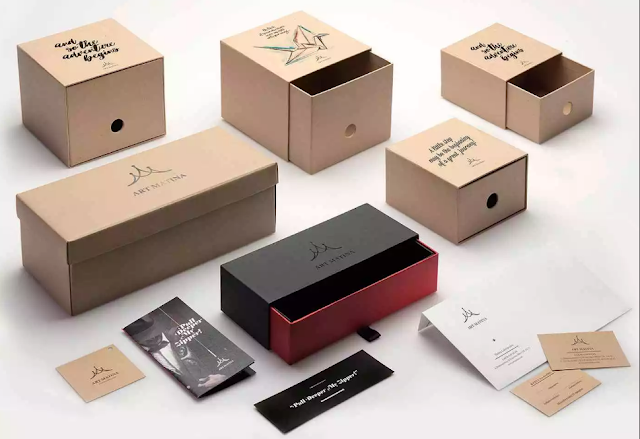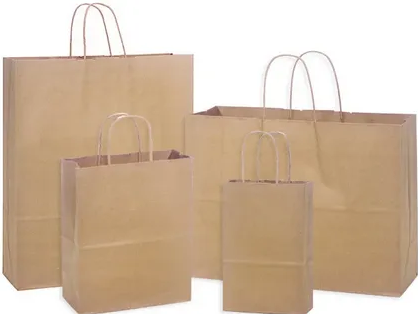Custom Packaging in the UK | Redefining Product Presentation and Brand Identity
In the competitive landscape of the United Kingdom’s market, where consumer expectations are continually rising, custom packaging has become more than just a necessity—it's a strategic advantage. Custom packaging not only serves as a protective barrier but also plays a crucial role in branding, marketing, and enhancing the overall customer experience. This article explores the significance of custom packaging in the UK, its benefits, key design considerations, and how businesses can effectively leverage this tool to stand out in the marketplace.
The Importance of Custom Packaging
Custom Packaging Uk involves designing and producing packaging solutions tailored specifically to a brand’s needs and product specifications. Unlike off-the-shelf packaging, custom solutions are crafted to reflect the brand’s identity, ensure optimal product protection, and provide a memorable consumer experience. Here’s why custom packaging is essential:
Brand Differentiation: In a crowded marketplace, custom packaging helps businesses differentiate their products from competitors. Unique designs, logos, and color schemes make products more recognizable and memorable, enhancing brand visibility.
Enhanced Customer Experience: Packaging is often the first point of contact between a consumer and a product. Custom packaging can create a positive first impression, making the unboxing experience more engaging and enjoyable, which can foster brand loyalty.
Marketing and Promotion: Custom packaging offers valuable real estate for marketing messages, promotional offers, and branding elements. It acts as a powerful marketing tool, conveying brand values and encouraging repeat purchases.
Product Protection: Tailored packaging ensures that products are securely housed and protected during transit and handling. Custom solutions can address specific requirements such as cushioning for delicate items or tamper-evident features for added security.
Sustainability: With increasing consumer awareness around environmental issues, custom packaging can align with sustainability goals. Brands can choose eco-friendly materials and practices, demonstrating their commitment to reducing their environmental footprint.
Benefits of Custom Packaging
Enhanced Brand Image: Custom packaging helps convey a premium brand image. High-quality, well-designed packaging enhances the perceived value of the product, allowing businesses to position themselves as high-end or luxury brands.
Increased Brand Recognition: Consistent use of custom packaging reinforces brand identity. When customers encounter familiar designs and logos, they’re more likely to remember and trust the brand.
Improved Functionality: Custom packaging is designed to meet specific product requirements, improving functionality. Whether it's for easier stacking, enhanced durability, or better usability, custom solutions can address various practical needs.
Higher Customer Engagement: Engaging packaging can capture customers’ attention and encourage them to interact with the brand. Elements such as QR codes, personalized messages, or interactive features can enhance engagement and create a memorable experience.
Differentiation in E-Commerce: For online retailers, custom packaging can improve the unboxing experience, a crucial factor in e-commerce. Eye-catching and well-thought-out packaging can make a significant impact on customer satisfaction and increase the likelihood of positive reviews.
Designing Custom Packaging
Effective custom packaging design involves several key considerations to ensure it meets both practical and aesthetic requirements:
Brand Alignment: The design of custom packaging should align with the overall brand identity. This includes using consistent colors, fonts, and logos that reflect the brand’s personality and values.
Product Requirements: Understand the specific needs of the product to design packaging that offers adequate protection and functionality. Consider factors such as size, weight, fragility, and handling requirements.
Consumer Preferences: Consider the preferences and expectations of the target audience. Design packaging that appeals to consumers’ tastes and enhances their experience with the product.
Material Selection: Choose materials that meet the product’s needs and align with sustainability goals. Options include cardboard, paperboard, plastic, and eco-friendly materials. The choice of material impacts both the durability and environmental footprint of the packaging.
Printing and Finishes: High-quality printing and finishing techniques can elevate the appearance of custom packaging. Options such as embossing, foil stamping, and matte or gloss coatings add a premium touch and enhance visual appeal.
Sourcing Custom Packaging Suppliers in the UK
Finding the right supplier is crucial for creating effective custom packaging solutions. Here are some tips for sourcing packaging suppliers in the UK:
Local Suppliers: The UK boasts a range of local suppliers specializing in custom packaging. Engaging with these suppliers allows for direct communication, sample reviews, and local support.
Online Research: Use online directories and review platforms to find reputable custom packaging suppliers. Websites such as Google My Business, Trustpilot, and industry-specific forums offer insights into suppliers’ quality and customer service.
Trade Shows and Exhibitions: Attend packaging trade shows and industry exhibitions to explore the latest packaging trends and technologies. These events provide opportunities to meet suppliers, see their offerings, and discuss custom solutions.
Custom Design Services: Look for suppliers that offer comprehensive design services. Professional designers can assist in creating packaging that aligns with your brand and meets functional requirements.
Customer Support and Flexibility: Choose suppliers known for their excellent customer support and flexibility. A responsive supplier can address any issues promptly and accommodate changes to design or order quantities as needed.
The Future of Custom Packaging
The custom packaging industry is evolving with advancements in technology and changing consumer expectations. Key trends shaping the future of custom packaging include:
Sustainability: The demand for sustainable packaging solutions is increasing. Brands are exploring materials such as recycled paper, biodegradable plastics, and minimalistic designs to reduce environmental impact.
Smart Packaging: Integration of technology into packaging is on the rise. Features such as QR codes, NFC tags, and augmented reality provide interactive experiences and additional product information.
Personalization: Advances in digital printing technology enable more personalized packaging. Brands can create limited-edition designs, seasonal variations, and targeted messaging to cater to individual preferences.
E-Commerce Adaptations: As online shopping continues to grow, Custom Packaging Boxes is being designed to optimize shipping and delivery experiences. Innovations focus on enhancing product protection during transit and creating memorable unboxing moments.
Conclusion
Custom packaging plays a pivotal role in the modern business landscape, offering numerous benefits from brand differentiation to improved product protection. For businesses in the UK, investing in custom packaging is a strategic move that enhances brand identity, engages customers, and aligns with sustainability goals. By understanding the significance of custom packaging, designing with purpose, and selecting the right suppliers, businesses can create impactful packaging solutions that resonate with consumers and set them apart in a competitive market. As trends evolve and technology advances, the future of custom packaging promises even greater opportunities for innovation and success.




Comments
Post a Comment